Katie Britt dominates fundraising in Alabama Senate race
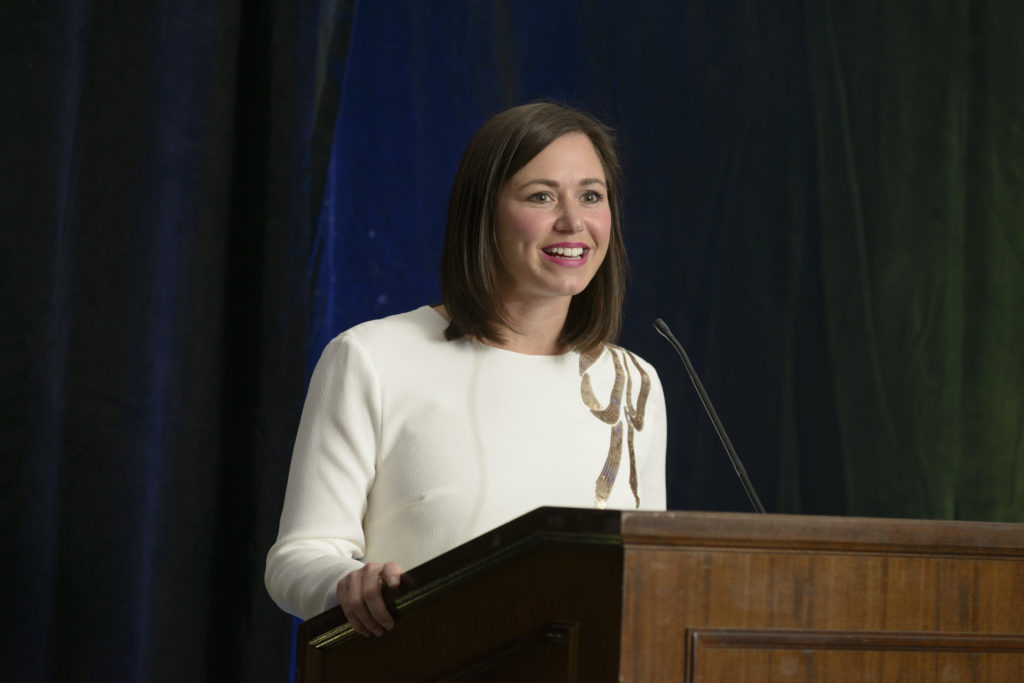
Katie Boyd Britt has piled up a significant cash advantage over Donald Trump-backed Rep. Mo Brooks and other candidates in the Alabama race for U.S. Senate. Britt, the former chief of staff to retiring Sen. Richard Shelby, is seeking to fill his seat in the 2022 election. Britt stepped down as head of the Business Council of Alabama to run for Senate and has so far dominated fundraising ahead of the June Republican primary. Britt has raised a total of $3.76 million for her campaign, including $1.5 million in the last quarter, according to reports filed with the Federal Election Commission. She has a $3.3 million campaign balance. Shelby, one of the Senate’s most senior members, announced earlier this year that he would not seek reelection in 2022, igniting what is expected to be a messy GOP primary in the red-leaning state. Shelby has called Britt the “best-qualified candidate to come along in a long time” but has not played any public role in her campaign. Brooks comes to the Republican primary armed with an endorsement from former President Donald Trump. Brooks has raised a total of $1.79 million for his campaign, including $663,074 in the last fundraising quarter. He entered the race with $1 million left from his last House of Representatives race and has $1.8 million on hand. Lynda Blanchard, a businesswoman who was Trump’s ambassador to Slovenia, has the most cash in the race, after taking out $5 million in loans earlier in the campaign season. Businesswoman Jessica Taylor reported raising $150,848. The other candidates in the race have raised nominal amounts. Republished with the permission of the Associated Press.
E-cigarette giant’s campaign donations favor democrats
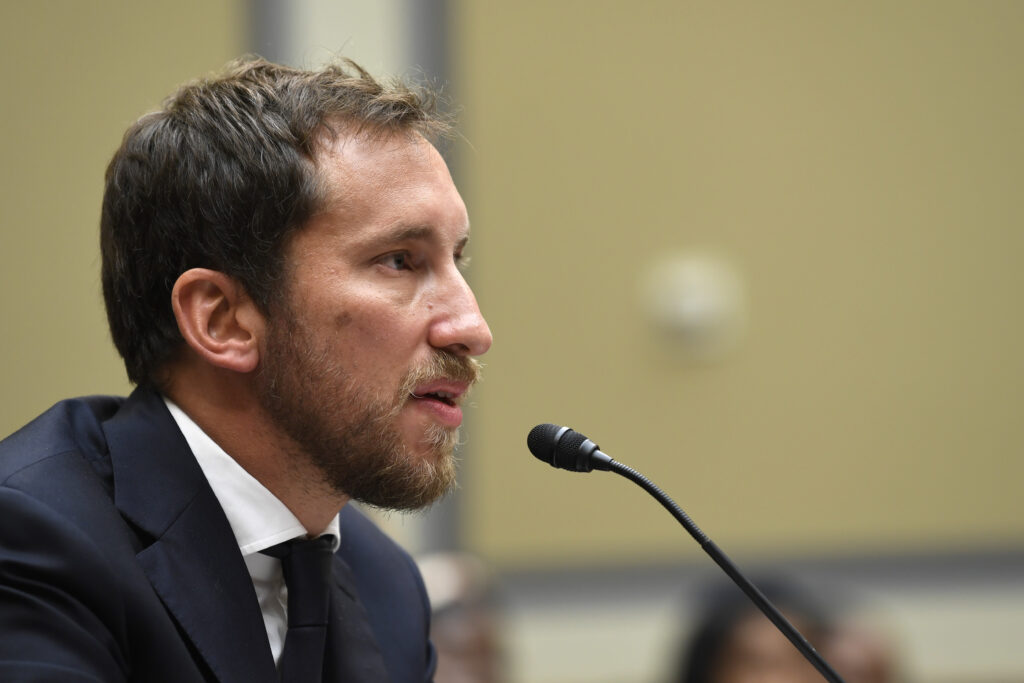
E-cigarette giant Juul Labs gave nearly $100,000 to members of Congress during the first half of 2019 as the company faced the bulk of the blame for a surge of underage vaping and calls for tighter government regulation of the industry. The donations from Juul’s political action committee represent a sharp increase over last year’s total, according to a Federal Election Commission report released Thursday that shows most of the money went to Democrats. The boost in contributions is the latest sign of the company’s expanding influence operation in Washington and around the country. An explosion of underage vaping has put Juul in the crosshairs of a number of Democrats, who have accused the company’s early advertising and marketing of leading to the current wave of vaping by American teens. Juul is ramping up its political giving as Congress considers legislation to raise the minimum age to purchase all tobacco and vaping products from 18 to 21. Juul and cigarette maker Altria — which controls 35% of the vaping company — have backed a Senate bill that raises the age nationally. The bill does not include additional measures that anti-tobacco groups say are needed to curb youth use, such as banning flavored products and online sales. Ted Kwong, a spokesman for Juul, said in a statement the company strongly prefers to support bills to raise the purchase age that are free of additional provisions, “as we believe it is one of the most effective ways to prevent underage use.” The new FEC figures show that Democrats, who won control of the House during last year’s elections, received $74,000 from Juul’s PAC between Jan. 1 and June 30 while Republicans received $22,500. Kwong said the company “strives to support candidates on both sides of the aisle” as part of its mission to “improve the lives” of smokers and “combat underage use.” Juul contributed $2,500 to Rep. Sanford Bishop, Democrat-Georgia Bishop has co-sponsored legislation to exempt most e-cigarettes on the market from health reviews by the Food and Drug Administration. Rep. Cedric Richmond, Democrat-Louisana, received $7,500, the largest donation to a single lawmaker. Richmond is co-chairman of Democratic presidential candidate Joe Biden’s campaign and a former chairman of the Congressional Black Caucus. The company gave $5,000 each to the Congressional Black Caucus and the Congressional Hispanic Caucus’ political action committees. The company also gave $2,500 to the ASPIRE political action committee that raises money for Asian American candidates for Congress.Juul donated $5,000 each to Sens. Kyrsten Sinema, Democrat-Arizona, and Jeanne Shaheen, Democrat-New Hampshire Shaheen has called e-cigarette companies the “culprits of this epidemic” of underage vaping. Legislation introduced by Shaheen would force manufacturers to fund anti-vaping education and prevention efforts for teenagers through federal user fees. The company reported giving $2,500 to a left-leaning group called VoteVets. But Jon Soltz, chair of VoteVets, said the organization didn’t accept the money. Sen. Catherine Cortez Masto, Democrat-Nevada, also didn’t want Juul’s donation. Ryan King, the senator’s spokesman, said Friday her campaign did not accept the $5,000 contribution “and has promptly returned the check.” Juul executives have said the company never intended its e-cigarettes to be adopted by underage teenagers. During a congressional hearing last week, Juul co-founder James Monsees testified that Juul developed its blockbuster vaping device and flavor pods for adult smokers who want to stop. “Combating underage use” is the company’s highest priority, Monsees added. Most health experts say that e-cigarettes are probably less harmful than traditional paper-and-tobacco cigarettes, which can cause cancer, lung disease and strokes. But neither Juul nor any other e-cigarette has yet been approved by the FDA to help smokers quit.Juul has assembled an extensive network of lobbyists amid mounting concern over e-cigarettes and warnings from the FDA that regulatory steps may be inevitable to combat what public health officials and anti-smoking groups have described as an epidemic of youth vaping. The company also has become a generous political donor, giving tens of thousands of dollars over the last 18 months to candidates for state and national offices as well as political organizations, according to the FEC data and state campaign finance records.During the first half of 2019, Juul spent $1.9 million on lobbying Congress, the White House and the FDA as the company expanded its pool of Washington insiders with ties to Republicans and Democrats in positions of authority. Among those lobbying on Juul’s behalf are Jim Esquea, who worked during the Obama administration as an assistant secretary at the Department of Health and Human Services, and Ted McCann, who was a top policy aide to former House Speaker Paul Ryan. Juul hired Fulcrum Public Affairs in January, adding to its lobbying ranks former aides to Obama-era Labor Secretary Hilda Solis and Rep. Maxine Waters, the California Democrat who chairs the House Financial Services Committee. In California, where Juul is headquartered, the company has donated close to $99,000 since early last year to members of the state legislature, political action committees and committees set up to influence the outcome of ballot measures. About a third of the money went to Assemblymember Adam Gray, a Democrat from Merced who chairs the powerful Governmental Organization Committee. Gray’s reelection campaign received $8,800 from Juul, and the company gave $25,000 to Valley Solutions, Gray’s ballot measure committee. Legislation introduced by Gray and other assemblymembers earlier this month to curb youth use of vaping products was criticized by the American Cancer Society’s Cancer Action Network as an industry-friendly measure that should be called the “Juul Market Share Protection Act.” Gray said in a statement sent by his spokesman that the financial support he receives “plays zero role in how I represent my district or how I make decisions on public policy.”Despite Juul’s public commitment to keeping its products out of teens’ hands, the company has fought in California and other states against legislation that anti-tobacco groups have argued would help to move toward that goal. Juul and the Vapor Technology Association, a trade group that lists Juul as a platinum member,
Freshmen house democrats raise more money than gop opponents
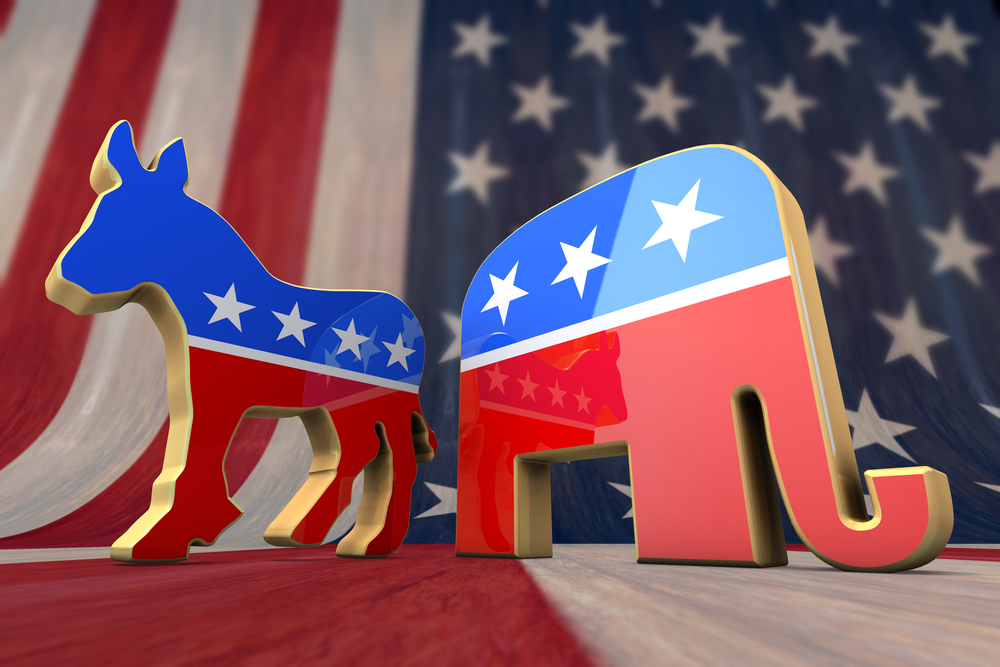
The Republican pathway for recapturing House control in next year’s election charges straight through the districts of the most vulnerable Democratic incumbents, especially freshmen. Judging from early but formidable cash advantages those lawmakers have amassed, ousting them won’t be easy. Each of the 62 freshmen House Democrats has raised more money than their top opponent. The same is true for all 31 Democrats from districts President Donald Trump had won in 2016 and for all 39 Democrats who snatched Republican-held seats last November. In nearly all cases it’s not even close. While there’s overlap among the categories, most of these Democrats’ war chests are multiples of what their leading challengers have garnered. That’s testament to the historic ability of both parties’ incumbents to attract contributions and Democrats’ strategy of aggressively collecting money quickly to seize on the anti-Trump enthusiasm that fueled their House takeover last year . “The more you can raise early on, the more you’re going to be able to solidify your seat and show that it’s not worth investments on behalf of Republicans” by GOP donors, said freshman Rep. Katie Hill, Democrat-California. Hill has raised $1.3 million so far this year, more than triple the combined contributions reported by her four would-be Republican challengers. She was elected last year in a Southern California district Republicans had held since 1993. Democrats control the House 235-197, with one independent and two vacancies. Republicans will need 218 seats for a majority. Democrats’ money advantages reflect reports filed with the Federal Election Commission covering the first half of 2019, so plenty can change by Election Day. Many serious challengers haven’t commenced their campaigns yet or have only recently started raising money, and many Republicans will eventually overtake their Democratic rivals. In addition, by November 2020 many GOP candidates will be bolstered by the Republican Party’s allied super PACs, political action committees that can spend unlimited funds. The Congressional Leadership Fund, the GOP super PAC that helps House candidates, unleashed $159 million in 2018 races, well above the $96 million by Democrats’ House Majority Fund. “We haven’t seen anything yet. Wait till the super PACs start dropping their bombs later in the cycle,” warned former New York Rep. Steve Israel, who once led the Democratic Congressional Campaign Committee, or DCCC, House Democrats’ election organization. Republicans downplay the early money discrepancies but concede the numbers merit attention. “It’s a wake-up call to every Republican that you’ve got to be out there doing the work, making sure we beat the trend of money coming in” to Democrats, said Rep. Rodney Davis, Republican-Illonios. Davis is a top Democratic target who was re-elected by less than 1 percentage point last November and faces a 2020 rematch against the well-financed Betsy Londrigan. Even so, warning signs for the GOP are scattered around the country. Democratic freshman Rep. Joe Cunningham, who squeaked into office in South Carolina’s Trump-leaning Lowcountry coastal district, has raised nearly $1.3 million. That’s more than quadruple his best-funded GOP opponent and double the top three Republicans’ contributions combined. Also outstripping their top money-raising GOP challengers are five freshmen from districts Trump carried by a comfortable 10 percentage points or more: Reps. Jared Golden of Maine, Kendra Horn of Oklahoma, Xochitl Torres Small of New Mexico and Anthony Brindisi and Max Rose of New York. Freshman Rep. Tom Malinowski, Democrat-New Jersey, who defeated a GOP incumbent in November, has doubled the fundraising of Tom Kean Jr., a prized GOP recruit and son of a popular former governor by the same name. Sixteen freshmen Democrats ousted Republicans last year by a narrow 4 percentage points or less, and all but two of them have raised at least twice as much as their nearest GOP rival: Reps. Gil Cisneros of Southern California and Oklahoma’s Horn. Underscoring Democrats’ efforts to shore up vulnerable incumbents, 26 of the 62 Democratic freshmen have already raised $1 million or more. They’re led by the nearly $2 million accumulated by the party’s highest-profile newcomer, progressive Rep. Alexandria Ocasio-Cortez , who has a safe New York City seat but seems likely to use some money to help others. Also exceeding $1 million in receipts are 13 of the 31 Democrats who captured Trump-won districts, and 23 of the 39 Democrats who grabbed GOP seats. One of those flush Democrats is freshman Rep. Josh Harder of California’s Central Valley. He’s raised more than $1.6 million, tripling his best-financed GOP challenger, Ted Howze, a large-animal veterinarian who ran unsuccessfully last year. “We don’t have to raise as much as him, but just enough to get our message out,” said Howze. He said he could need up to $6 million for his campaign. Harder spent more than $8 million to win in 2018. The DCCC should further shore up Democrats. It disbursed $297 million helping candidates for 2018, exceeding the $201 million spent by its counterpart, the National Republican Congressional Committee. It’s ahead in this year’s money race as well. In some areas, Republicans are already exhibiting fundraising chops. Don Sedgwick, mayor of Laguna Hills, California, has raised an impressive $621,000, but that’s a fraction of the $1.4 million collected by his intended target, freshman Democratic Rep. Katie Porter. Republican Young Kim, whom Cisneros narrowly defeated in 2018, is not far behind the $579,000 Cisneros has raised. And while freshman Rep. Lucy McBath, Democrat-Georgia, has raised nearly $1.2 million, the top four GOP contenders have raised $1.5 million combined. That suggests plenty of money may be available for the eventual Republican nominee. By Alan Fram Associated Press. Republished with permission of the Associated Press.
Bradley Byrne announces 2020 Senate bid to challenge Doug Jones
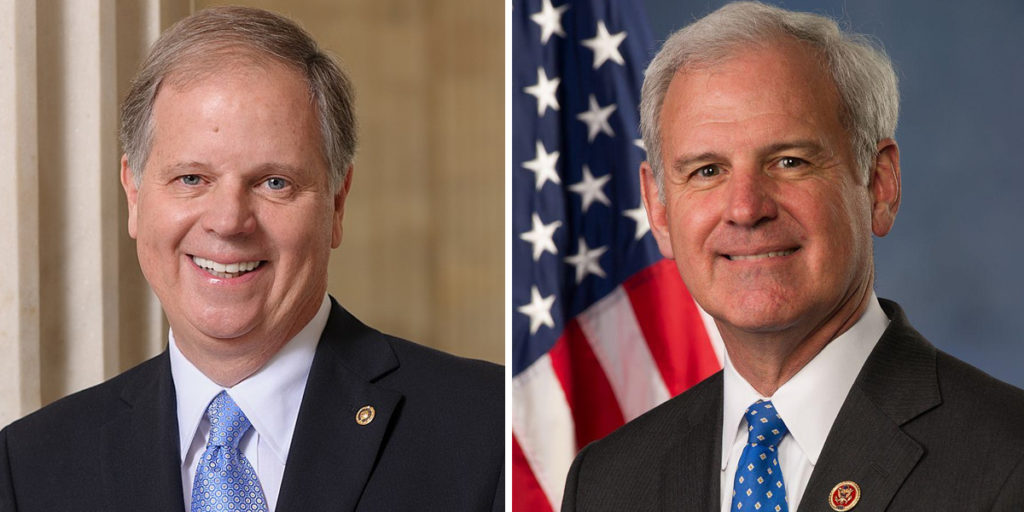
Alabama 1st District U.S. Rep. Bradley Byrne on Monday announced he will run for a Senate seat in 2020, giving Republicans their first option for taking back the seat that U.S. Sen. Doug Jones won in a special election in Dec. 2017. Byrne made the announcement Monday night, just down the street from where he grew up, at Wintzell’s in downtown Mobile, Ala. In announcing his candidacy, Byrne made clear his campaign will focus on his record as a fighter for Alabama’s values. “The fight for America’s future is too important to sit on the sidelines. I am running for the United States Senate to defend the values important to Alabama,” Byrne said. “We need a Senator who will fight with President Trump to defend the Constitution, build the wall, stand up for the unborn, push for lower taxes, make health care more affordable, and protect the Second Amendment. I will fight every day to bring Alabama’s conservative values to Washington.” Following Byrne’s announcement, Jones weighed-in on Byrne’s candidacy. “Given the results of his losing bid for governor in 2010, in which he did not even win the republican nomination, it’s hard to see why they would nominate a career politician like Bradley Byrne now,” said Jones. “He has been part of the problem in Washington for years.” Byrne has represented Alabama’s 1st District since 2014. Battle of the war chests When it comes to cash-on-hand, Byrne is not too far behind Jones. According to Federal Election Commission (FEC) filings, Byrne has $1,090,498.98 is his congressional campaign fund, which he is able to transfer to his senate campaign. Meanwhile, Jones has a balance of $2,131,165.71 cash-on-hand.
AG Steve Marshall asks FEC to investigate Senate race tactics
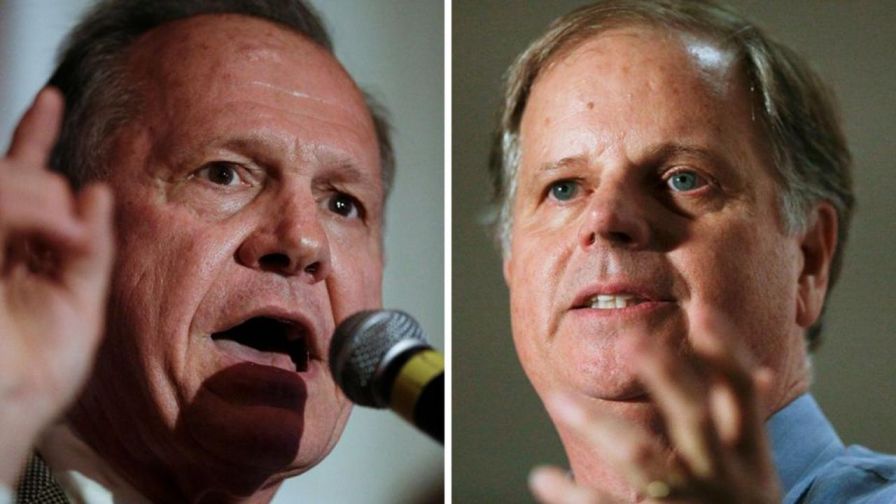
The Alabama attorney general is not investigating reports of online fakery in the 2017 Alabama Senate race after determining it is an issue for federal election regulators. A spokesman for Attorney General Steve Marshall said Monday that Marshall’s office has asked the Federal Election Commission to “investigate the matter to determine if any federal laws were violated.” The Washington Post and New York Times reported incidents of misleading online tactics by a social media researcher and others during Democratic Sen. Doug Jones’ 2017 campaign against Republican Roy Moore. Operators posed as conservative voters on Facebook. Marshall previously said he was evaluating the reports. Spokesman Mike Lewis wrote in an email that they evaluated reports of possible deception and “determined the matter to be under the exclusive jurisdiction” of the FEC. Republished with permission from the Associated Press.
Q3 reports reveal Alabama’s federal candidates raking-in money
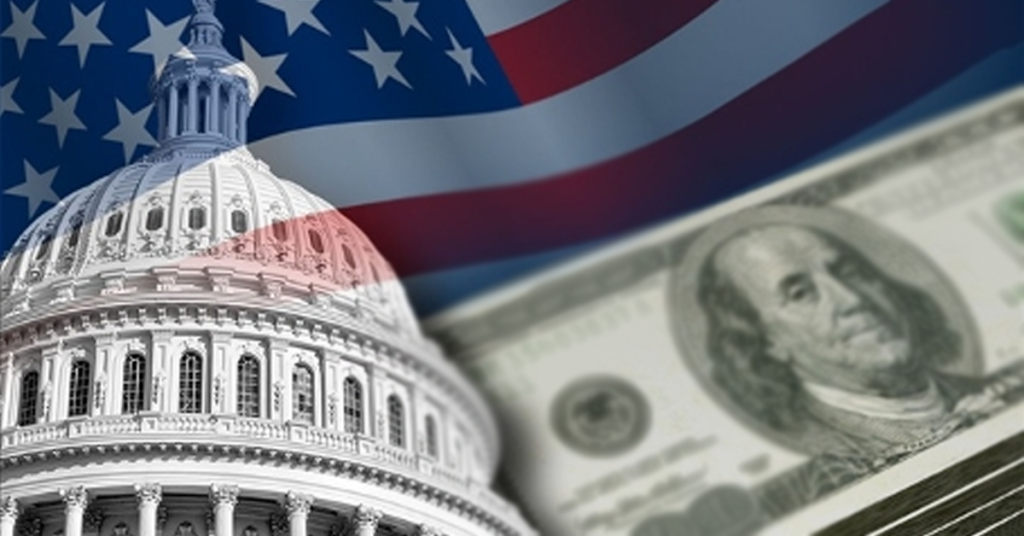
Election Day is only three weeks away, and candidates across the state are making their final efforts in hopes of victory on Nov. 6. Part of those efforts is the ever-important fundraising and Monday marked the midnight deadline for U.S. House candidates to file their Q3 quarterly campaign finance reports to the Federal Election Commission (FEC). The reports detail how much much the candidates raised, how the spent said money, and how much cash they have left on hand between July 1 and Sept. 30 of this year. Across the board, filings reveal Republican incumbents are leading their Democratic challengers in the money race in all six of the state’s challenged congressional districts. Here’s a topline look at the Q3 filings: 1st Congressional District Bradley Byrne (Republican, incumbent) Total receipts: $1,235,766.41 Total disbursements: $645,973.06 Total cash on hand: $1,036,111.68 Robert Kennedy (Democrat, challenger): Total receipts: $17,426.64 Total disbursements: $12,176.64 Total cash on hand: $44,526.77 2nd Congressional District Martha Roby (Republican, incumbent): Total receipts: $300,443.30 Total disbursements: $571,207.30 Total cash on hand: $459,909.75 Tabitha Isner (Democrat, challenger): Total receipts: $167,455.90 Total disbursements: $117,346.47 Total cash on hand: $137,544.01 3rd Congressional District Mike Rogers (Republican, incumbent): Total receipts: $224,232.84 Total disbursements: $148,387.09 Total cash on hand: $1,100,276.29 Mallory Hagan (Democrat, challenger): Total receipts: N/A (not yet online) Total disbursements: N/A (not yet online) Total cash on hand: N/A (not yet online) 4th Congressional District Robert Aderholt (Republican, incumbent): Total receipts: N/A (not yet online) Total disbursements: N/A (not yet online) Total cash on hand: N/A (not yet online) Lee Auman (Democrat, challenger): Total receipts: $34,614.45 Total disbursements:$33,362.04 Total cash on hand: $10,238.47 5th Congressional District Mo Brooks (Republican, incumbent): Total receipts: $181,615.94 Total disbursements: $15,166.70 Total cash on hand: $767,904.50 Peter Joffrion (Democrat, challenger): Total receipts: N/A (not yet online) Total disbursements: N/A (not yet online) Total cash on hand: N/A (not yet online) 6th Congressional District Gary Palmer (Republican, incumbent): Total receipts: $229,517.37 Total disbursements:$232,486.22 Total cash on hand: $978,007.43 Danner Kline (Democrat, challenger): Total receipts: $76,664.17 Total disbursements: $44,450.29 Total cash on hand: $94,762.11 7th Congressional District Terri Sewell (Democrat, incumbent): Total receipts: $261,901.50 Total disbursements:$195,812.89 Total cash on hand: $1,622,089.61
Following FEC ruling, Alabama candidate permitted to use campaign funds for child care expenses

The Federal Election Commission (FEC) in May ruled unanimously that federal candidates can use campaign funds to pay for child care costs that result from time spent running for office. The FEC justified their decision by saying the candidate’s child care needs were a direct result of her running for office and essential to her continuing to do so. Thus, the spending would not be considered a violation of rules that prohibit personal spending. Since the FEC only regulates federal election campaign finance, an Alabama candidate for the State House District 45, Democrat Jennifer Gray, requested a formal opinion from the Alabama Ethics Commission as to whether or not she could do the same. In her request Gray explained she would not have needed the child care had she need been a candidate. And without child care, she cannot participate in campaign activities like attending Chamber of Commerce meeting, meeting with constituents, canvassing or phone banking. Unlike the FEC, the Ethics Commission decision was not a unanimous one. In a 3-1 ruling, they decided Gray may use her campaign funds as such expenses would not exist “irrespective of the candidate’s campaign officeholder duties.” “[Gray] may use campaign funds to pay for the childcare expenses described in the request to the extent such expenses are incurred as a direct result of campaign activity and are tied to specific campaign events,” said Jerry L. Fielding, Chair of the Alabama Ethics Commission, in the decision. But the Commission didn’t make a blanket ruling for all candidates. They clearly concluded their ruling stating, “The conclusion reached herein applies only to these facts and may not be applied beyond these facts.” They also ruled that Gray must disclose her child care expenses so that donors know exactly where the funds are going. “The payments must be reasonable and customary for the services rendered, and the campaign must properly document the expenditures,” the decision read.
Doug Jones accepted Rosie O’Donnell campaign donations beyond federal legal limit
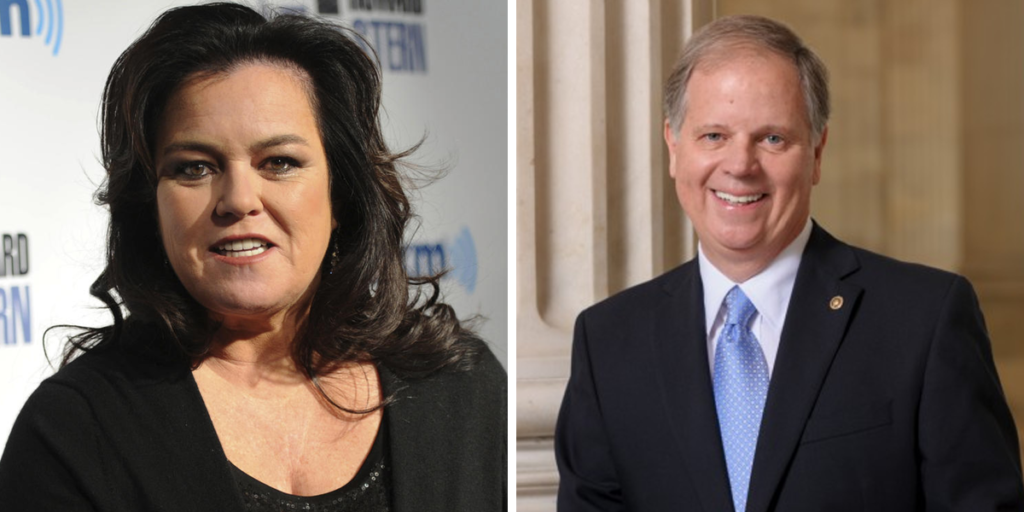
Newly elected Alabama Senator Doug Jones has been accused of accepting donations beyond the federal legal limit from nationally known comedian, and Donald Trump adversary, Rosie O’Donnell. A report by the New York Post published Saturday evening, details the donations O’Donnell madefor at least five Democratic candidates including Jones. According to the report, she donated $4,700 to the Doug Jones campaign using an online liberal fundraising platform, ActBlue. Currently, the Federal Election Commission (FEC) limits the total that any one person can give to an individual candidate to $2,700 per election. The limit applies separately to primaries, runoffs and general elections. O’Donnell said she was unaware of the law and assumed that ActBlue would automatically limit her donations accordingly, “If 2700 is the cut off — [candidates] should refund the money,” she wrote. “I don’t look to see who I can donate most to … I just donate assuming they do not accept what is over the limit.” According to campaign fillings, O’Donnell donated more than $90,000 to 50 different federal candidates and committees during the 2017-2018 election cycle, and exceeded the legal limit on at least five campaigns. Both donors, and the candidates they donate to, are legally liable for any contributions that go over the legal limit. However, it’s unlikely O’Donnell or her benefactors will be penalized for breaking FEC rules. Contributions that break the limit can be refunded to the donor or counted toward a different election. Married donors may also attribute the given money to a spouse. “Donors are rarely fined for excess contributions and then only if they are hiding the donations from the recipients,” prominent D.C. campaign finance lawyer Jan Witold Baran told the Post. “Campaigns generally are not penalized for isolated contributions over a limit. However, multiple excessive donations may lead to an investigation … Fines could result in such cases.” Jones has yet to comment on the accusations.
DNC lied about how much it spent to defeat Roy Moore
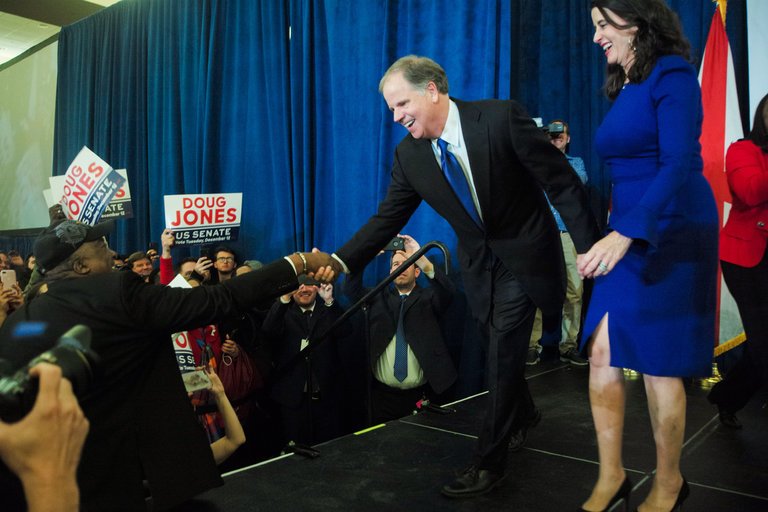
Following Democrat Doug Jones‘ victory in December, the Democratic National Committee (DNC) claimed they aided his campaign tremendously; declaring they spent $1 million dollars of their own money towards defeating Republican Roy Moore. Last year’s heated senate race between now Senator Jones and his opponent, former Alabama Chief Justice, Moore had everyone in Alabama on edge. The race garnered national media attention and even the attention, and endorsement, of President Donald Trump. What a great opportunity for the DNC to show it’s power and wealth. Well, maybe not. Although the committee did contribute aides, organized voter-outreach plans, and campaigned via text, calls, and volunteers, the committee only spent $250,000 of their own money towards the campaign. The cash was used to fund more than two dozen staffers in Alabama who organized outreach to African-American voters. The rest of the $1 million that the DNC claimed actually came from voters and donations that the DNC solicited for Jones campaign. “For the first time in its history, the DNC used its email list for split fundraising to directly raise money for and invest in campaigns across the country in 2017,” Michael Tyler, DNC spokesman told McClatchy. “While the RNC cut blank checks for an accused child molester, we’re proud that tens of thousands of Americans contributed $5 and $10 at a time to fund the Doug Jones campaign’s organizing efforts.” The DNC has filed reports with the Federal Election Commission showing $87,000 and claims they will be able to show another $163,000 when records of their spending are received. The remaining $679,000 they raised through e-mail fundraising will not have to be reported with the FEC since the money never actually passed through the committee. Jones is already working on paying the committee back, at the end of December he sent an e-mail to former Vice-President Joe Biden‘s PAC, American Possibilities asking for donations for democratic candidates in 2018.
Super PAC attacking Roy Moore won’t disclose donors, FEC asked to investigate
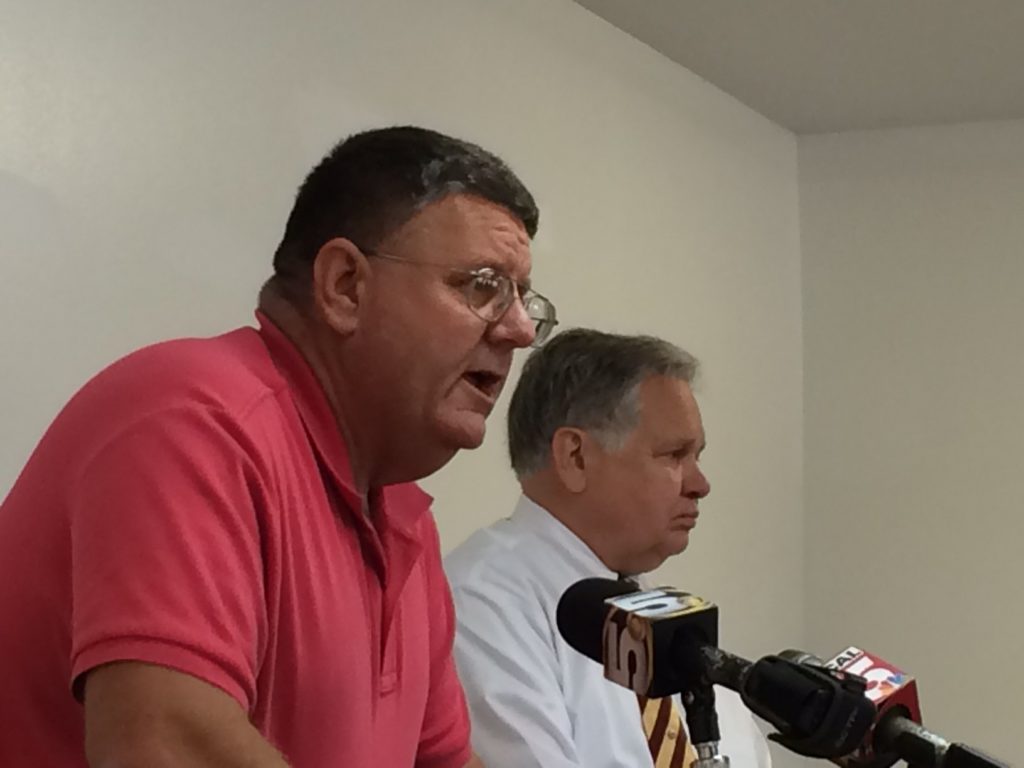
The Federal Election Commission (FEC) has been asked to investigate a super PAC that is spending large amounts against Republican senate candidate Roy Moore, but is not showing any donations. Highway 31, a super PAC backing Democratic candidate Doug Jones and the largest independent spender in the Alabama Senate race, has spent millions attacking Moore. But unlike other campaign spenders, this particular group refuses to disclose who the donors are behind its multi-million ad buy before Election Day. On Monday, Baldwin County businessman Kevin Spriggs asked the FEC to investigate the mysterious super PAC. “Mr. Commissioner – As a resident of Alabama, I have noticed a Super PAC titled ‘Highway 31’ running numerous campaign commercials in the Mobile. Ala. television market, including an ad during the SEC Championship football game,” Spriggs said in his request to FEC Chairman Mathew Peterson. “A search of the FEC website shows hundreds of thousands of dollars of expenses without any donors. I also checked the irs.gov website for forms 8871 and 8872 required to be filed by 527 organizations. No filings are shown for donors and expenses. If donations and expenses exceed $50,000, the IRS requires an electronic filing of form 8872.” Spriggs continued, “I am asking you to please investigate this matter as it appears that this Highway 31 organization is evading campaign finance law by not disclosing their donors.” Lachlan Markay of the Daily Beast explained the situation further : Super PACs are required to disclose their donors, but the group Highway 31 has structured its spending in a way that campaign-finance experts say is almost unprecedented. While legal, it will have the effect of obscuring the group’s benefactors, who will have financed a series of ads over the last two months of the campaign propping up Jones and hammering his Republican opponent, former State Supreme Court Justice Roy Moore. Highway 31 has reported nearly $2 million worth of ads in the race, according to filings with the Federal Election Commission… The group filed what was expected to be its first itemized disclosure of donors and expenditures Thursday. But in the filing, Highway 31 said it had received and spent no money whatsoever. Spriggs says he has not received any reply from the FEC, but he hopes for action before the Dec. 12 special election when Moore faces off against Jones Under FEC rules, final contributor and expense disclosure reports are not required to be filed until Jan. 21, 2018.
Republican Senate Cmte drops out of fundraising agreement with Roy Moore
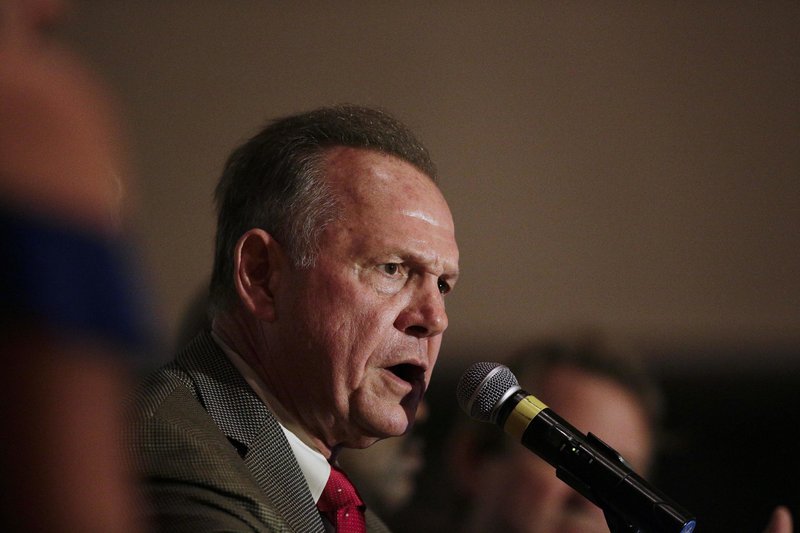
Less than 24 hours after bombshell allegations of sexual assault surfaced against Alabama U.S. Senate candidate Roy Moore, the Republican Party’s campaign wing on Friday severed its fundraising agreement with the former state Chief Justice. Paperwork was filed with the Federal Election Commission (FEC) on Friday showing the National Republican Senatorial Committee (NRSC) has been removed from a joint fundraising committee that also includes Moore’s campaign, the Alabama Republican Party and the Republican National Committee. “The allegations against Alabama Senate candidate Roy Moore are deeply troubling,” Colorado-Republican Sen. Cory Gardner, chairman of the NRSC said in a prepared statement. “If these allegations are found to be true, Roy Moore must drop out of the Alabama special Senate election.” He explained the NRSC’s focus “is always on keeping a strong Republican majority in the Senate.” The NRSC did not respond to requests from Alabama Today for comment. Moore has been under fire since The Washington Post published an explosive report Thursday afternoon with the accounts of four women who claim he sexually pursued them when he was in his 30s and they were in their teens. The news has caused rapid fallout from dozens of Senate Republicans who have called on Moore to withdraw his name from next month’s special election if the allegations are true. Moore faces the Democratic nominee Doug Jones in the special election on Dec. 12.
RNC: Spending on legal bills for Donald Trump Jr. nears $200K

The Republican National Committee has paid nearly $200,000 in legal fees for President Donald Trump‘s eldest son in connection with the Russia investigation, a committee official said Tuesday. More than $166,000 was paid to Donald Trump Jr.’s attorney, Alan Futerfas. Another $30,000 went to the law firm of Williams & Jenson, which helped prepare him for testimony. The RNC official insisted on anonymity to discuss financial information not yet made public. The RNC is expected to release its August spending totals Wednesday, but that report will not include the spending on Trump Jr.’s legal fees. Those figures will appear on the committee’s September report, the official said. Trump Jr.’s attorneys’ fees were paid for out of the “legal proceedings account,” a pre-existing account that high-dollar donors to the party knowingly contribute to. The payments were not taken from the party’s general fund and will not reduce party spending on political work, the official said. Trump Jr. recently testified in private to Senate investigators that he did not collude with Russia to damage Hillary Clinton‘s campaign against his father. Congressional investigators and Justice Department special counsel Robert Mueller want to learn more about a June 2016 meeting Trump Jr. had at Trump Tower in New York with a Russian lawyer as part of their separate but broader inquiries into links between the Trump campaign and Russia. U.S. intelligence agencies have said Russia tried to influence the election to help Trump win. Trump’s son-in-law, Jared Kushner, now a senior adviser to the president, also attended the June 2016 meeting. As of mid-July, Trump’s presidential campaign had spent almost $1 million on legal fees this year, according to a campaign finance report filed with the Federal Election Commission. That included a $50,000 charge for Futerfas’ law firm. The payment was made shortly before news reports about the younger Trump’s Russia meeting. Republished with permission from the Associated Press.


